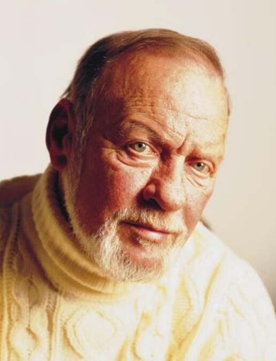Napoleon Chagnon facts for kids
Quick facts for kids
Napoleon Chagnon
|
|
|---|---|
 |
|
| Born | 27 August 1938 Port Austin, Michigan, U.S.
|
| Died | 21 September 2019 (aged 81) Traverse City, Michigan, U.S.
|
| Nationality | American |
| Alma mater | University of Michigan (B.A., M.A., PhD) |
| Known for | Reproductive theory of violence, ethnography of Yanomamö |
| Scientific career | |
| Institutions | |
| Thesis | Yanomamö Warfare, Social Organization and Marriage Alliances (1966) |
| Doctoral advisor | Leslie White |
| Influences | Meyer Fortes, Sewall Wright, E. O. Wilson |
Napoleon Chagnon (born August 27, 1938 – died September 21, 2019) was an American cultural anthropologist. An anthropologist is a scientist who studies human societies and cultures. He was a professor at the University of Missouri and a member of the National Academy of Sciences.
Chagnon was well-known for his long-term ethnographic field work. This means he spent many years living with and studying the Yanomamö people. The Yanomamö are an indigenous tribe living in the Amazon rainforest. Chagnon used an evolutionary approach to understand their social behavior. This way of thinking looks at how actions might help people survive and have children. His research focused on why violence happens among tribal groups. He suggested that successful warriors among the Yanomamö often had more children. His 1967 book, Yanomamö: The Fierce People, became very popular. It is often used in university classes about anthropology. Many people saw him as a pioneer in scientific anthropology.
Contents
Early Life and Learning
Napoleon Chagnon was born in Port Austin, Michigan. He was the second of twelve children in his family. In 1957, he started college at the Michigan College of Mining and Technology. After his first year, he moved to the University of Michigan. There, he earned his bachelor's degree in 1961. He then received his master's degree in 1963 and his PhD in 1966. His main teacher was Leslie White. For his PhD, Chagnon studied the Yanomamö people. He spent 17 months in the field starting in 1964. His research looked at how family ties, called kinship, affected how Yanomamö villages were organized.
Studying the Yanomamö People
Chagnon is most famous for his long studies of the Yanomamö. These are indigenous Amazonians who live near the border of Venezuela and Brazil. He worked in the upper Siapa and Mavaca River areas of Venezuela. He did his field work from the mid-1960s until the late 1990s.
When Chagnon first arrived, he noticed something important. The theories he had learned in school did not fully explain what he saw. He observed that fighting and raids, often over women, were very common. The Yanomamö people nicknamed him "pesky bee" because he was always asking questions.
A big part of his research was collecting genealogies. These are family trees of the people in the villages he visited. From these family trees, he studied how people were related. He also looked at marriage patterns, how people cooperated, and how villages moved over time. Chagnon believed that how closely people were related was important for forming alliances. This included alliances during conflicts.
Understanding Yanomamö Society
Chagnon's way of analyzing things was influenced by sociobiology. This field looks at how biology and evolution can explain social behaviors. Chagnon explained that Yanomamö society seemed to encourage "fierceness." He thought this behavior helped men have more children and be more successful. His family trees showed that men who had killed others often had more wives and children. Also, villages that were more warlike tended to grow larger than their neighbors.
Chagnon's idea that violence was linked to having more children was a new thought. It challenged the idea that cultures are only shaped by human experiences. The debate over Chagnon's work is often seen as a good example. It shows the differences between biological and sociocultural anthropology.
Books and Films
Chagnon's book, Yanomamö: The Fierce People, was published in 1968. It sold almost a million copies and had many new editions. It is often used as a textbook in university anthropology classes. This makes it one of the most popular anthropology books ever.
Chagnon also helped create the field of visual anthropology. This is about using films and photos to study cultures. He worked with filmmaker Tim Asch. Together, they made more than twenty films about Yanomamö life. One famous film is The Ax Fight. It shows a fight between two Yanomamö groups. The film then explains how the fight relates to their family networks. This film is considered a classic in ethnographic filmmaking.
In 2012, Napoleon Chagnon was chosen to join the National Academy of Sciences. He passed away on September 21, 2019, at the age of 81.
Film
Chagnon worked with ethnographic filmmaker Tim Asch. They produced at least forty films about Yanomamö culture. These films include The Feast (1969), Magical Death (1973), and The Ax Fight (1975). These films, especially The Ax Fight, are widely used in anthropology classes. They are considered some of the most important ethnographic films ever made.
See also
- Visual anthropology
- The Trap (television documentary series); Chagnon features in The Trap, a BBC documentary.
 | Janet Taylor Pickett |
 | Synthia Saint James |
 | Howardena Pindell |
 | Faith Ringgold |

